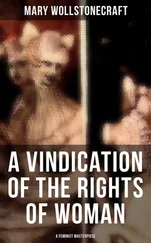Andrea Dworkin - The Political Memoir of a Feminist Militant
Здесь есть возможность читать онлайн «Andrea Dworkin - The Political Memoir of a Feminist Militant» весь текст электронной книги совершенно бесплатно (целиком полную версию без сокращений). В некоторых случаях можно слушать аудио, скачать через торрент в формате fb2 и присутствует краткое содержание. Жанр: Публицистика, на английском языке. Описание произведения, (предисловие) а так же отзывы посетителей доступны на портале библиотеки ЛибКат.
- Название:The Political Memoir of a Feminist Militant
- Автор:
- Жанр:
- Год:неизвестен
- ISBN:нет данных
- Рейтинг книги:4 / 5. Голосов: 1
-
Избранное:Добавить в избранное
- Отзывы:
-
Ваша оценка:
- 80
- 1
- 2
- 3
- 4
- 5
The Political Memoir of a Feminist Militant: краткое содержание, описание и аннотация
Предлагаем к чтению аннотацию, описание, краткое содержание или предисловие (зависит от того, что написал сам автор книги «The Political Memoir of a Feminist Militant»). Если вы не нашли необходимую информацию о книге — напишите в комментариях, мы постараемся отыскать её.
The Political Memoir of a Feminist Militant — читать онлайн бесплатно полную книгу (весь текст) целиком
Ниже представлен текст книги, разбитый по страницам. Система сохранения места последней прочитанной страницы, позволяет с удобством читать онлайн бесплатно книгу «The Political Memoir of a Feminist Militant», без необходимости каждый раз заново искать на чём Вы остановились. Поставьте закладку, и сможете в любой момент перейти на страницу, на которой закончили чтение.
Интервал:
Закладка:
was now both stockpiling and testing them. My father said
that he would have died if not for Hiroshima and Nagasaki,
because he shortly would have been sent to “the war in the
Pacific” as it was cal ed. When Truman used the nuclear bombs,
he saved my father’s life. I thought my father was pretty selfish
to hold his own life to be more important than so many other
lives. I thought it would be a good idea not to have war
anymore. I could feel nuclear winter chilling my bones, even
though the expression did not yet exist, and I had a vivid
picture of people melting. I’ve never got en over it.
44


Cuba 1
There was one day when al my schoolmates and I knew that
we were going to die. According to historians the Cuban
missile crisis lasted thirteen days, but to us it was one day
because we knew we were going to die then, that day. I don’t
know which of the thirteen it was, and I don’t know if I’m
col apsing several days into one, but I remember nothing
before the one day and nothing after. In the back of the school
bus al the girls gathered in a semicircle. We talked about the
sadness of dying virgins, though some of us weren’t. We spoke
with deep regret, like old people looking back on our lives; we
enumerated al that we had not managed to do, the wishes we
had, the dreams that were unfulfilled. No one talked about
get ing mar ied. Children came up in passing.
The Soviets had deployed nuclear missiles in Cuba. The
missiles were pointed at the United States, and the range of
the ICBMs was about from Cuba to the school bus - the
northeast corridor of the United States. For probably the first
time, I kept my Che-loving politics to myself. I don’t think
I even had any politics on that day. I don’t remember
the geopolitical blah-blah or the commie-versus-good-guy
45


Heartbreak
rhetoric - except that it existed - or how the United States was
the white hat standing up for the purity of the Americas. I do
remember television, black-and-white, and the images of stil
photographs, a grainy black-and-white, showing the bombs or
the silos. The United States had been untouchable, and now
it could be touched, and we’d feel our own bones melt and in
the particle of a second see our own cities drowned in fire. I
wasn’t afraid to die, but sitting stil and waiting for it was not
good. I still feel that way. We al , including me, felt a little
sorry for ourselves, because everything we had ever known
had been touched by nuclear war; it was the shadow on every
street, in every house, in every dinnertime conversation, in
every current-events reprise; it was always there as threat, and
now it was going to happen, that day, then, there, to us. The
school bus was bright yellow with black markings on the outside, just the way they are now, but everything was different because we were kids who knew that we were going to be
cremated and killed in the same split second. I could see my
arm withered, the flesh coming off in paper-thin layers, while
my chest was already ash, and there’d be no blood - it would
evaporate before we’d even be dead. Inside the bus the boys
were up front, boisterous, fil ed with bravado. I guess they
expected to pull the missiles out of the air one by one, new
superheroes. The girls were serious and upset. Even those who
didn’t like each other talked quietly and respectful y. There
was one laugh: a joke about the only girl in the school we
46


Cuba 1
were sure was no virgin. She was famous as the school whore,
and she was widely envied though shunned on a normal day,
since she knew the big secret; but on this day, the last day, she
could have been crowned queen, sovereign of the girls. She
represented everything we wanted: she knew how to do it and
how it felt; she knew a lot of boys; she was really pret y and
laughed a lot, even though the other girls would not talk to
her. She had beautiful y curly brown hair and an hourglass
figure, but thin. She was Eve’s true descendant, the symbol of
what it meant to bite the apple. Tomorrow she would go back
to being the local slut, but on the day we were al going to die
she was Cinderel a an hour before midnight. I wished that
I could grow up, but I could not entirely remember why. I
waited with my schoolmates to die.
47


David Smith
He was one of the United States' greatest sculptors, not paid
attention to now but in my high school and college years he
was a giant of an artist. He was especially at ached to
Bennington College, where he had taught and near where he
lived. One night I went to a lecture by art critic Clement
Greenberg, probably the most famous visual arts writer of his
time. Greenberg was a name-dropping guy, and most of his
lecture was about the habits of his bet ers, the artists he
deigned to crown king or prince. At some point during the
lecture, Greenberg said that great sculptors never drew. A
huge man stood up, overshadowing the audience, and in a
deep bass said, “I do. " While Greenberg turned beet red and
apologized, the big guy talked about how important drawing
was, how sensual it was; he gave specifics about how it felt to
draw; he said that drawing taught one how to see and that
drawing was part of a continuous process of making art, like
breathing when you were asleep was part of life. After the
lecture a friend who was a painting student asked if I wanted
to go with her to meet David Smith. “I wouldn't want to
bother him, " I said, not having a clue that the big guy was
48


David Smith
David Smith and he was staying that night in Robert
Читать дальшеИнтервал:
Закладка:
Похожие книги на «The Political Memoir of a Feminist Militant»
Представляем Вашему вниманию похожие книги на «The Political Memoir of a Feminist Militant» списком для выбора. Мы отобрали схожую по названию и смыслу литературу в надежде предоставить читателям больше вариантов отыскать новые, интересные, ещё непрочитанные произведения.
Обсуждение, отзывы о книге «The Political Memoir of a Feminist Militant» и просто собственные мнения читателей. Оставьте ваши комментарии, напишите, что Вы думаете о произведении, его смысле или главных героях. Укажите что конкретно понравилось, а что нет, и почему Вы так считаете.












